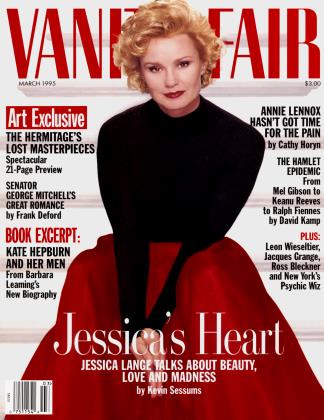Sign In to Your Account
Subscribers have complete access to the archive.
Sign In Not a Subscriber?Join NowMary Wesley looks like Miss Marple and writes like Barbara Pym in high heels, but she's led a life as rich and ribald as the characters in her novels. With her ninth book, the little old lady from Devon is hotter than ever
March 1995 Christopher Hitchens SnowdonMary Wesley looks like Miss Marple and writes like Barbara Pym in high heels, but she's led a life as rich and ribald as the characters in her novels. With her ninth book, the little old lady from Devon is hotter than ever
March 1995 Christopher Hitchens Snowdon View Full Issue
View Full Issue






Subscribers have complete access to the archive.
Sign In Not a Subscriber?Join Now